






For the past five decades, the British Malaysian Chamber of Commerce (BMCC) has been a catalyst in advancing bilateral trade relations between the United Kingdom and Malaysia, providing businesses with networking and exposure, branding and profiling, trade services and industry advocacy. As the two countries’ robust relations continue to create various opportunities for businesses, education has emerged as one of the most important sectors for the Chamber. Through two highly active education committees acting as networking and advocacy platforms, one focusing on schools for ages 3-18, and the other on higher education, the BMCC demonstrates our commitment to creating a stronger engagement with our members and stakeholders in the sector, discussing relevant issues and channelling these concerns as a collective voice, as well as sharing best practices and developing initiatives contributing to the education sector in Malaysia.
The Student Voice is one such initiative that the BMCC is proud to play an active role in. I would like to take this opportunity to congratulate and convey our appreciation to the BMCC Higher Education Committee and all who contributed to its rich content and successful launch. It is my hope that the timely release of this seminal publication, in the much-transformed pandemic higher education landscape, will spark productive and influential discussions to help shape the future of student representation and leadership in Malaysia’s higher education system. At the BMCC, we look forward to continuing our contribution to Malaysia’s aspirations to become the regional education hub through more of such value-adding industry-led initiatives in the future.

 Jennifer Lopez Chief Executive Officer, BMCC
Jennifer Lopez Chief Executive Officer, BMCC
The importance of the student voice is central to the success of any HE system. The Malaysian government has recently been exploring the potential for the reintroduction of student unions since they were abolished in the mid-70s and transformed into Student Representative Councils.
The student voice is essentially about ensuring that student views and opinions are incorporated into the decision-making process of a university, and in the case of student unions, ensuring that they have a key role in the strategic direction of a university.
The BMCC Higher Education committee had planned a publication highlighting these issues across both UK and Malaysian higher education institutions in Malaysia in 2019. Unfortunately, the COVID-19 pandemic delayed the publication, and necessitated the reframing of some of the debate to ensure that we gain the views of students, institutions, government and employers on how the current situation has influenced the recent discussions around student voice.
We began with interviews of both governmental and university (both public and private) leaders and then continued with the student perspective, interviewing student leaders across some of the UK branch campuses here in Malaysia, as we felt that these would give an interesting perspective on the dynamics between the UK and Malaysia in relation to how the student voice is heard and how it matters to students in Malaysia. These interviews included students at the International University of Wales Malaysia; Educity, Johor; Student Council, University of Reading Malaysia; and, Newcastle University Medicine Malaysia.
We then described in detail an innovative approach to capturing the student voice that has been introduced at the Royal Holloway College, University of London, UK and finally discussed how graduate employers view student involvement in representative bodies at University.
October 2020
 Guy Perring Regional Director Tribal Group (M) Sdn Bhd
Guy Perring Regional Director Tribal Group (M) Sdn Bhd
 Prabha Sundram Head Education, Malaysia British Council
Prabha Sundram Head Education, Malaysia British Council


When the BMCC Higher Education Committee set out to explore the role of the student voice and the potential re-introduction of student unions into Malaysian universities in 2019, little did we know that 2020 would be the year of the COVID-19 pandemic or understand the challenges that this pandemic would bring to society as a whole.
As universities struggled heroically to transition almost immediately from faceto-face to online provision - which would normally take years of preparation - and academic staff had to learn a wide range of new skills facilitating this move, we have all tried to find the silver lining(s), amid the havoc that these changes may bring to the higher education sector in the future. Many consider the ongoing situation as the catalyst for changes that were long overdue in the sector and see the move towards online pedagogy and online support (such as career and counselling services) will remain long after the pandemic has subsided.
The upheaval to the higher education sector globally cannot be underestimated and no one has, as yet, really calculated the full cost of the pandemic in terms of its effect on the mental health and wellbeing of students and staff (both academic and professional) due to the direct impact of the sudden changes to the way programmes are being delivered and assessed, or to the significant financial implications to institutions due to the changes they have made to their delivery and the subsequent decisions that have been made by students (and parents) in how and where they wish to study. What we do know is that the impact of the COVID-19 pandemic on our young people will be immense and it is very hard for them to plan for the post-pandemic world with any great certainty.
The speed of change from lockdowns to travel restrictions has been unprecedented and there has been little room for consultation with student leaders as a top-down approach was deemed necessary by universities to get to grips with the pandemic as quickly as possible, ensuring both the safety of students and staff and the continued delivery of courses that meet the learning outcomes of the programme of study.
However, as we move forward, and as students begin to debate the issues around online, blended or face-to-face modalities of learning and teaching, or explore how they can interact both academically and socially with their fellow students whilst maintaining appropriate SOPs, it seems more important than ever to put the student voice back into the debate. Thus, we must now ensure that at both local university level and national governmental level that student views are adequately represented as we work together to create a new world from the unpredictability that 2020 has brought to us.
This publication is designed to consider why the student voice is more important than ever to us all in higher education and in the case of Malaysia, specifically, to consider some reactions/views to the proposed re-introduction of student unions.
We have interviews with Dr Zaid Bin Omar (former Director of Student Development Division, Department of Higher Education, Ministry of Education), who has been consulting widely with various stakeholders affected by the proposal to reintroduce student unions, and also interviews with institutions, student leaders, employers and a case study from the UK on an innovative approach to capturing student views.
We trust you will find this brief publication to be of interest as a stop on the road to achieving greater influence of the student voice in policy decisions in higher education in both Malaysia and beyond.
T
he BMCC Higher Education (HE) Committee consists of members in the higher education sector. There are currently 25 membersuniversities (UK & Malaysia), professional bodies and education consultancies. The committee serves as a networking and advocacy platform to discuss issues and concerns affecting the higher education sector with the aim of channelling these concerns as a collective industry voice.The committee is also a network to share best practises and develop initiatives to engage with relevant stakeholders to contribute to the higher education sector in Malaysia.
Chair:
• Heriot-Watt University Malaysia
Prof. Mushtak Al-Atabi (CEO & Provost)
Members:
• 3Quantum Consultancy
Gerald Fernandez (CEO)
• ACCA Malaysia
Hishamuddin Jalil (Head of Strategic Partnership)
• Advance HE
Ian Hall (Head of Membership, International)
Kristian Rumble (International Partnerships Manager)
• Asia e-University (AEU)
Prof. Dato’ Dr Ansary Ahmed (Founder President)
• British Council
Jazreel Goh (Director Malaysia)
Prabha Sundram (Head Education, Malaysia)
• British High Commission
Fiona Louis (Trade Manager)
Gurpreet Kaur (Assistant Trade Manager)
• CIMA SE Asia Sdn Bhd
Ginny Lim (Regional Head, SEA)
Venkkat Ramanan (Regional Vice President – Asia Pacific)
• City & Guilds (M) Sdn Bhd
Victoria Horrox (Head of East Asia)
• CMI Management & Leadership Sdn Bhd
Zain Munir (Head of International)
Mellisa Patrick (Programme Development Manager)
• Insendi Ltd (Imperial College)
Danny Bielik (Regional Director APAC)
• International University of Malaya-Wales (IUMW)
Tay Kay Luan (Vice-Chancellor)
Ooi Lay Tin (Head of Sales & Marketing)
• Kaplan Financial Ltd
Calum Shepherd (International Client Relationship Manager)
Zaiti Waddell (Business Relationship Manager)
Deputy Chair:
• University of Southampton
Prof. Rebecca Taylor (Pro Vice-Chancellor, ASEAN) & CEO, Malaysia)
• Lancaster University
Prof. Andrew Abbott (Academic Dean)
• Newcastle University Medicine Malaysia (NUMed)
Prof. Chris Baldwin (CEO & Provost)
• QS Enrolment Solutions
Fu Ching Yee (Director of Operations)
Jason Chan (Client Partnership Director)
• Sunway University
Prof. Graeme Wilkinson (Vice-Chancellor)
• The Institute of Chartered Accountants in England &Wales (ICAEW)
Loh Wei Yuen (Head of Malaysia)
• Tribal Group (M) Sdn Bhd
Guy Perring (Regional Director)
• Universiti Kuala Lumpur (UniKL)
Assoc. Prof. Dr. Kushsairy Abdul Kadir (Dean)
• University of Hertfordshire
Indrani Kuppusamy (Head Regional Office, SEA, Malaysia)
• Universiti Malaya (UM)
Assoc. Prof. Dr. Yong Zulina Zubairi (Associate Vice-Chancellor, International)
Prof. Dr. Yvonne Lim (Director - International Relations Office)
• University of Nottingham
Kylie Colvin (Director of Strategy & Business Transformation)
• University of Reading Malaysia
Prof. Wing Lam (Provost & CEO)
For further information on the BMCC HE Committee, please contact Phoebe Nonis, Trade Manager: phoebe@bmcc.org.my

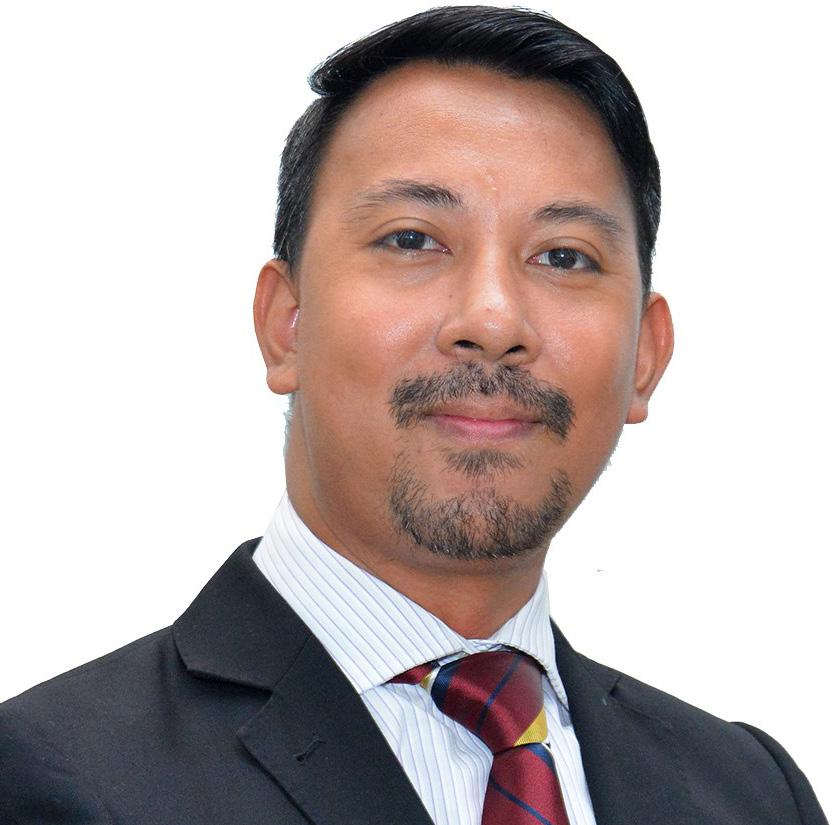
Why has the importance of the student voice become of more concern to the Ministry in the last few years?
In my opinion, it would be remiss to discuss the student’s voice in Malaysia without referring to the general election in 2018. The government then came to power partly due to their promise on academic reform and youth empowerment, which I think appealed mainly to the young, progressive and urban voters.
Since then, we have witnessed new empowerment initiatives being implemented at the Higher Education Ministry, most notably the efforts to reform the Universities and UniversityColleges Act (UUCA) and also the establishment of student unions in our universities. In the last couple of years, it has been refreshing to see student empowerment become one of the main thrusts of the ministry, which in turn has been reciprocated tremendously by the universities. So far, our engagement with the students at the grassroot level shows their support and approval for these moves, and they would like to see them progressing under the new government.
At the end of the day, a strong, open democracy in any country requires its citizens to be equally open and mature. Though this is just a start, we believe having a strong Malaysian student voice will provide a firm check and balance not only on university governance, but also on higher education overall. This can only benefit Malaysia in the long run.
Can you give us some background and history on the development of student representation/unions?
Student activism in Malaysia started with the students from the University of Malaya (UM), the nation’s first and only university prior to our independence in 1957, which was then based on student unions in UK varsities. Interestingly, even way back then there was a vibrant student activism scene, led by the UM Students’ Union (UMSU). They ran a student newspaper called The Malayan Undergrad, and I remember reading a copy featuring a line that said: “Do not let the future generations judge our generation as a dormant generation, whose only legacies are dance coupons, cigarette butts, and jaunts on the weekend.”
As with other parts of the world, student movements tend to be quite left-leaning and anti-establishment in nature. In Malaysia, the 1960s were regarded by some as the “golden age” of student activism. It was during this era that student activists radically protested against the government while fighting for the poor and marginalised. Things came to a head in a series of clashes involving thousands of students, such as the rallies in Baling and Tasek Utara. The government, in response, eventually introduced the UUCA in 1971 which ultimately curtailed student movements nationwide. Under the act, the university structure was amended to include a Student Affairs department. From then onwards, student activism took on a rather different direction. Clubs and societies were still free to run, though under the auspices of the Student Affairs
department. The role of the student union was replaced by a Student Representative Council (SRC), minus the independence and autonomy. Furthermore, the university was allowed to be much stricter with student dissidents and political influences on campus.
Since the 1970s, there has been frequent debate as to the propriety and effectiveness of the UUCA. In the 2000s, an undercurrent of student and academic sentiments gave rise to Gerakan Mansuhkan AUKU (Abolish UUCA Movement), which argued the act to be discriminatory, not only to students but also to the academic faculty, and calls for its dissolution. Now with government support, as we stand the act is being reviewed and a replacement act is currently being drafted before it goes to parliament next year.
It must be said though that student activism hasn’t entirely been dead during the UUCA era. Activism as a concept to me is a very broad term; it can include involvement in clubs and societies, such as leading the volunteer club, language society or being active in uniformed bodies on campus. It can also comprise informal, personal endeavours by a student, such as embarking on social-entrepreneurship or passion projects to aid the community. It can also encompass student representation and voicing out for students’ rights. Activism can mean big achievements by students on the world stage and making Malaysia proud, but also small, consistent efforts that nonetheless leave an indelible impact on someone. All of these, in my humble opinion, are valid forms of activism. In the end, being an activist is for the student to make the most of his time in university to better himself and help others. That’s what I meant by student activism not being dead but taking on a different direction.
In terms of looking at other education systems around the world, have you looked at best practices in this area of student union representation?
In order to research our initiative of student empowerment and student unions, we had a look at several other countries. Of course, the Malaysian education system is primarily based on the British system, so this has been our main source of reference. I personally studied the structure of several UK universities, their student unions and also the National Union of Students (NUS UK). Not only that but we researched the role of the Office for Students (OfS), the Department of Education and the Education Act. We carried out extensive research on those systems and set-ups. We read about their history, rules and regulations, success stories, demarcation of roles with the university, amongst other things.
The highlight was when representatives from Malaysian institutions visited several UK universities themselves and had discussions to learn about their systems. Loughborough University, considered the best student union in the country, was visited on multiple occasions. We also looked at Singapore, which shares some similarities with Malaysia. In my visit last year, I was quite surprised that the student union at the National University of Singapore (NUS) was much more active and open compared to Malaysia. That is something we can definitely learn from.
That being said, we also carried out a brief study of other countries such as the US, Indonesia, and Australia, though not as extensively or detailed as our studies on UK universities. Overall, I found that the UK is the best model we can refer to.
You mentioned Indonesia – are the models of student representation across ASEAN similar or different?
I suppose each country is rooted in history depending on the former colonies they are associated with. Even in South East Asia, we have several varying systems. Malaysia and Singapore are quite similar, but Malaysia has many higher education institutions. Indonesia is quite different; they have hundreds of universities. Thailand and the Philippines are yet more different.
I would say that Indonesian student representation or activism is much more radical and bolder compared to Singapore and Malaysia. I think in this effort to promote student empowerment and student unions in Malaysia, we are not looking at any one country and adopting their model 100%, obviously. We are looking at the best elements and practices of all the countries we studied. This includes the UK and Indonesia. We do admire the student movements in Indonesia that are truly independent and can galvanize and organise themselves, but their confrontational and aggressive nature is not so appealing. So, we take the good and leave the bad.
Are there any test cases or pilots being formed in the public institutions?
The idea of establishing the student union is top-down from the ministry and has been brought down to the university level, and so it is up to the universities to see to its implementation. Being autonomous entities, some universities tend to be more advanced and receptive to the idea than others. Meanwhile, we at the ministry try to coordinate and synchronise all progress and development. We try to organise townhall meetings, engagement sessions, national-level workshops, as well as produce guidelines and a timeline that all universities can adhere to.
In particular, one university – the International Islamic University Malaysia (IIUM) – has by far been the most advanced, proactive and supportive of our proposed ideas. I think it is because they have a good ecosystem with huge buy-in from the students, university staff, and also top management. In fact, IIUM successfully launched its official student union in October 2019.
In the meantime, the University of Malaya (UM) and Universiti Kebangsaan Malaysia (UKM) SRCs have rebranded and renamed themselves as student unions, UMSU and UKMSU respectively. While we have no problem with this, I hope that the change is more than just nominal, and that they will strive to fulfil the criteria we have set to become effective student unions.
What are the challenges and obstacles in the reintroduction of student unions now and in the future?
I think the most obvious obstacle is the current regulation on student activism which is enshrined in the present act. The UUCA provides a general list of provisions and restrictions on what students can and cannot do on campus. Universities adopt this as their charter or constitution and from there the campus bylaws and code of conduct, and so on are drawn. Even though the act is in the process of being abolished, as we currently stand it is still in effect. So, we must be careful that any current changes we want to make now must not contravene the UUCA.
This means we can’t immediately have full-fledged student unions, like those in the UK with their own buildings, staff, and businesses. So, at present, we are aiming instead for the quick wins – practical and feasible steps and criteria for the universities to implement that would still move them closer
towards the goal of student empowerment and student unions. These include involving students in university decision-making, having student representatives attending management and senate meetings, establishing a student parliament, allocating them funds to manage, amongst others.
After the act itself, the second challenge is the political will of the university leadership. A student union essentially means that we are removing some of the power from the university and handing it to the students. Clubs and societies, for example, will be returned to the student union to manage as in the pre-UUCA era. The question is, are universities ready to hand over that power? A true litmus test is the willingness and trust of both the university and students to work together on this initiative.
The third obstacle would probably be student apathy or their indifference to whether student empowerment or a student union will affect them at all. Unfortunately, this has been the case in the student population and mindset for so many years. Obviously, this is something we want to change through advocacy and publicity. It’s a cultural and mindset shift that we must make along with having a student union. It makes no point to having a nice structure of the student union in place if their heart is just not in it. It will just be a white elephant project in a few years’ time.
Have you seen any push back from institutions that are resistant towards the change?
Malaysia boasts two main types of higher education institutes (HEIs) - public universities, and private HEIs. The 20 public universities are generally more regulated and accountable to the government. Due to this, we have decided to prioritise implementing the student union initiatives in public universities first. So far, I have not explicitly heard of any push back or criticism from them. Rather, it’s just a matter of how fast or slow their progress is. I can probably understand that, since this is a new idea that takes a while to get used to. It’s important that the engagement is made not just with the student population, but also with the university management and staff, both of whom also stand to be affected. So, they need to be comfortable with that fact.
On the other hand, private HEIs are more autonomous in nature. We have mooted the student union idea to several private universities and while they admit it is interesting, the private sector would like to observe their public counterparts first and see the progress. Hopefully, after the public universities are settled, we can shift our focus to private universities.
What do you see as the broader benefits to society as a whole?
I think we can agree that universities are so much more than mere degree factories. The scholar Meredith L. Weiss in her book Student Activism in Malaysia also commented that universities nationwide have a dual mandate: one is to produce good workers, and the other is to produce good citizens. A unique environment in university, absent anywhere else, allows you to make lifelong friendships, find your identity, and discover new and bold experiences. This is due not only to the academic and curricular elements, but also to the entire campus ecosystem that supports the student’s holistic development. It is the intangible elements, such as student activism, that he picks up along the way in his academic quest that may equally contribute towards the above goals. All in the hope that we will produce not only competent workers but also good citizens who can go on to contribute to nation-building.
Parents may be worried that involvement in student unions or activism will interfere with their studies?
I would say that it is not mutually exclusive. If you participate in student union or student activism endeavours, it doesn’t necessarily mean you have to take your attention away from your studies. The experiences in the UK, Singapore, and Australia (which are developed countries) show it can be done. The length or degree of participation in student activism can vary – you can choose to be a president and immerse yourself full time, or you can be a course representative, or just an occasional volunteer. At the end of the day, we are creating the full environment to allow students to partake and giving them that choice to participate.
How are you ensuring that the student voice is being heard during this challenging time?
I think the government has gone above and beyond in helping the students during this very difficult time of COVID-19 and the ensuing movement control order (MCO). The response and management of the crisis have in fact been better than many other countries. To all students affected by the situation, we have provided financial aid and ample food assistance. We have set up a hotline at the ministry to deal with any queries that students, parents or the public might have. For example, nonresidential students at a college recently contacted our hotline asking about getting food aid; we relayed this to the college management who were not aware of this and they eventually made sure food aid was sent to these students.
We also tasked the universities to set up a similar hotline or ‘war room’ on campus. With regard to any decision or any initiative that has been considered, student representatives have been involved and consulted. For instance, universities are supposed to decide on the date when online learning can resume during the MCO. Many universities have consulted their SRC, to get their opinion on student feedback about online learning. Universities have been very wise in utilising this feedback channel. I think this is a good example of where students and universities can work together for the common good.
Any final remarks?
While political will is important, I believe that student empowerment is not and should not be political. Student empowerment efforts are meant to benefit the 1.3 million student population in Malaysia, irrespective of the political divide. It would also be unfair to say that prior to 2018 students were not empowered at all. The endeavour actually aims to build on the previous best practices that we have in the country and bring the student voice further to the fore.
So, it’s high time that we give them that voice and representation. Students are the largest group of stakeholders in higher education. It is important to allow students to exercise their freedom of speech and provide them with a safe platform to learn and grow from mistakes and revel in their success. The aim is to create balanced, mature, analytical and critical thinking individuals that are able to contribute back to society. Our goal is to produce students who are equipped with not only the theoretical and technical skills of their field of study, but who are also able to be opinionated, rational and reasonable and can play a part in nation-building. If we can achieve that in the future, then I will be proud to have played my part.

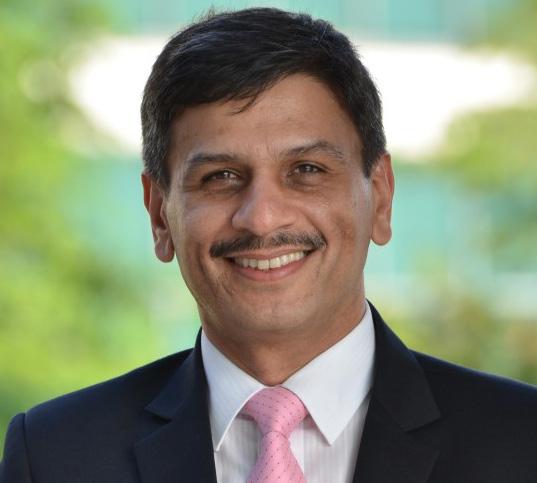
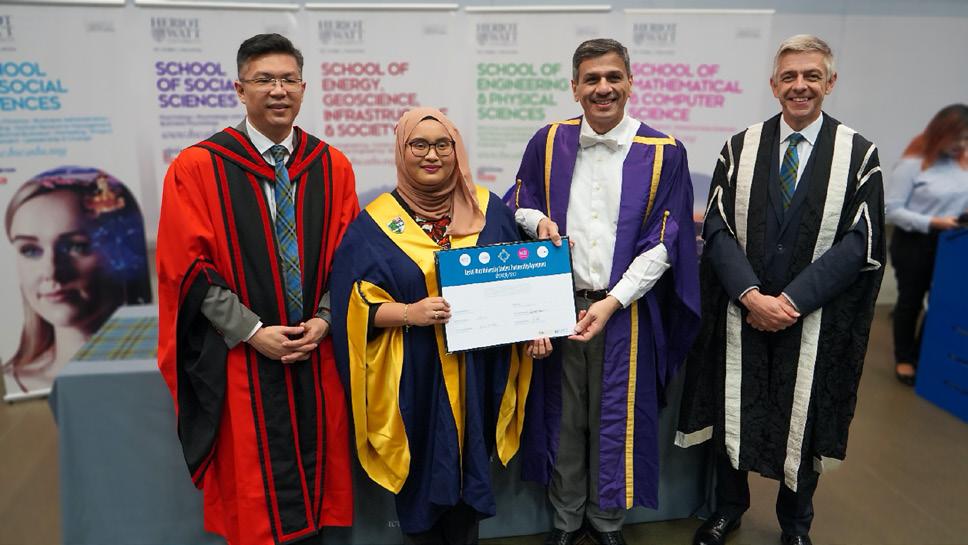
How important is the student voice to your institution?
The student voice is extremely important, and I guess every institution would say so. Ethically and professionally, we are responsible for our students. (In the UK, the NSS survey1 is an extremely important indicator which focuses on the students in the UK and impacts our rankings). We are here because of our students and it’s important that students feel positively about their time with us.
Have you noticed any changes over time?
The influence of the students is growing by virtue of them being more aware of the importance of their voice and as more academic institutions recognise the academic process as a partnership between them and their students. We all need to pay attention to the student voice.
How are you affected by external regulations and internal regulations that influence the university ecosystem in relation to the student voice?
In the UK we are autonomous and very independent. Our internal regulations are very inclusive, and we have student representatives on various university boards and committees.
It’s a very interesting time now in Malaysia. The change in government promised a lot in terms of empowering students and bringing advocacy. These are talked about and the process is in train – we need to be ready for it.
Paying attention to the student pulse is very important. Mental health and well-being are increasingly recognised as areas that we need to focus on, and we need to be more active rather than passive in all of that.
1 The National Student Survey (NSS) is an annual survey of nearly half a million students across the UK. The survey gathers opinions from students about their time in higher education, asking them to provide honest feedback on what it has been like to study on their course at their university/college.
Prof. Mushtak Al-Atabi pictured at the Signing Ceremony of the Student Partnership Agreement 2019-2020. He is second from the right.Is there a good way to share best practices between the UK and Malaysia? Especially with Malaysia being federal-led and the UK being institution-led.
I can reflect on our own experience as a global university with campuses around the world. I think the first step is to recognise is that there are good things in every location and identify those.
For example, currently Heriot-Watt Malaysia is leading in the areas of Positive Education, Mental Health, Wellbeing and Happiness. With initiatives such as HappierU and EmPOWER Programme, we are asking our students and staff to develop their Impact Statements and be clear about their life purpose. We are also encouraging our community to make the choice of being a happy community. This work started as an experiment in Malaysia and we have learned a great deal from it. The experiment is now being expanded into other parts of the university as part of “Building Flourishing Communities” which is a strategic theme under our Strategy 2025.
From our UK campus, an area that we have a lot to learn from, is the way that the Student Union is run. For example, over in the UK we have a full-time CEO to help run the student union. The students are very active in sports at a competitive level and they run the union in a very entrepreneurial manner. This is something that we are trying to do more of in Malaysia and we are deliberately moving in this direction.
Around two years ago we collectively initiated the Student Partnership Agreement. This Agreement is signed by the Principal and Vice-Chancellor, Provosts of different campus locations and the student leaders in Edinburgh, Dubai, Orkney, Scottish Borders and Malaysia. The Agreement represents our public commitment to listen to the students’ voice and work together to improve their academic experience, sense of community and wellbeing. This is a manifestation of the ethos of our university of putting our students and staff at the centre of everything we do.
Are we ready for student empowerment in Malaysia?
I believe that this will be a journey and the higher education sector in Malaysia is ready to start it. As this is a new change in Malaysia, there will be some challenges. I think we need to be patient and we need to plan well as well as develop cultural, developmental, and policy frameworks to enable the desired change to take place.
Culture will develop over time and both HE institution leaders and student leaders will have to show the way. Academic and professional services staff as well as students need to be trained and developed to deal with situations as they arise and to understand the current legal frameworks.
I think specifically in Malaysia, with the introduction of a stronger student voice which hasn’t happened for decades, there will be some teething issues – that will be inevitable, but I am optimistic.
What are the wider benefits to Malaysia as a whole to hear these student voices?
I think the common observation that we hear about the education system in Malaysia is that it is capable of producing people who are very competent academically, but often skills like critical thinking, creativity, communications, speaking out, teamwork
seem to be lacking. These views are coming repeatedly from different stakeholders and employers. Empowering the student in the long term would help. It will not be the only antidote, but it will help produce more rounded citizens who are aware of their rights, able to stand for what is correct and have the courage to do so.
Listening to the student voice is expected to improve the students’ experience and this will contribute to making Malaysia a more attractive higher educational hub capable of attracting more international students. I am sure the overall effect will be positive.
Is there a danger with the embrace of student unions that it can limit the type of voice and/or certain type of person? How do we ensure a wider student body is involved?
Ensuring wider student participation is very important and communication is key to achieving that. Even now, whenever we have elections for the President and Office Bearers of the Student Association, we try to reach out and encourage more students to put themselves forward as candidates and we encourage them to cast their votes too. We explain to the students that serving the student body and participating in extracurricular activities are key to building the skills necessary for success in the workplace and life at large.
Ensuring that we always have effective engagement between the university staff and management and the student body is always important. For example, at Heriot-Watt University, we have class representatives, school officers as well as a student welfare committee that can help with this regard.
The other thing is to encourage a more systematic development of the other non-student union clubs and societies. In Malaysia, our university has just over 2,000 students and we have 80 clubs and societies. We encourage students to lead and participate in these clubs where they can gain EmPOWER points and reflect that in their portfolios.
What are your thoughts on multi-stakeholders’ roles in developing the student voice?
Particularly from a private education point of view, the other very important voice is the parents. Often parents view higher education as an investment in their children, and indeed their families, future. That is why it is important to take the parents with us on this journey. For example, at Heriot-Watt University, we encourage the student elected to the position of president of the student association to take a paid sabbatical for a year. This way they can devote their time to the position without worrying about their academic progress. Many parents do not see this as a wise investment, and they do not encourage their children to go for that. Changing this requires more engagement with parents to explain that the sabbatical it is not a year wasted, and this could actually be a great investment. This can be done by showing them examples of how different students progressed their careers faster because of serving in the position full time.
The other important stakeholder is employers. We can always get them to be more involved in this process and show them how they can be partners in focusing on the positive outcomes of empowering our student body overall.
We all assume the government has decided to move positively in this direction of student empowerment.

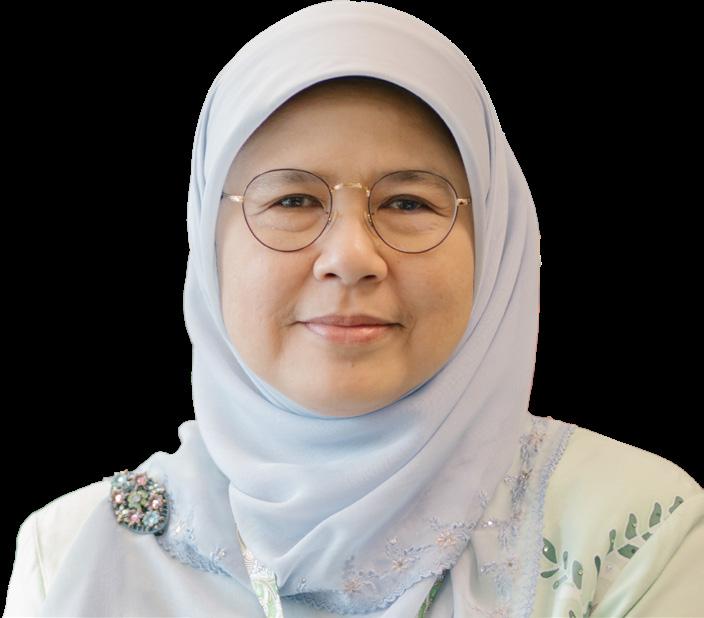
It is very important. We have had engagement with students for various different reasons. For me personally, because of my role as DVC (Academic and International), I engage with them to get their feedback on the curriculum. It’s not just me organising workshops, but part of our procedure of curriculum review. Every three to five years they are included as stakeholders, so we need to get their views.
In my own initiative, we wanted to look at how we can include more holistic types of programmes. Largely we had adopted the British system of education and students have a smattering of courses they have to take which are prescribed by the Ministry of Education.
So, there are lots of courses concentrating on their own major. But when we started the curriculum review process two years ago, we did it at the university level with workshops on how we can incorporate a more liberal arts kind of education. We are very traditional and so I was hesitant, and we needed to see if we could get the buy-in from all stakeholders. We had the workshops including student leaders as stakeholders. The idea of what to include and how we might be able to infuse these ideas into our curriculum were introduced by the students.
We plan to begin the implementation in 2021/22 across the whole university. It is called the Student Holistic Empowerment Programme, which means students are empowered to choose which courses to take from four different categories under certain subject clusters. For example, in the IT cluster they can pick and choose from 20 -25 courses including data science and data analytics to become digitally literate. Another category is on global issues and sustainability. Such options give them the full scope of what higher education is, beyond their major subject.
So, the student voice is really important. The Student Affairs Division engages heavily with students, especially with the residential colleges. If they have issues, they will bring it up. They are listened to all the time. But it goes both ways and if there are areas we need buy-in or get input or need to disseminate information on, then we rely on the students.
We have always had student associations, but it is just not called a student union. We have always had a Speakers Corner. We have always had a lot of engagement with students. Some of them were invited on campus and voiced their dissent through memoranda or placards.
Already students are part of our Senate and invited to our meetings. Senate is made up of people for various acts. Students don’t have a decision-making voice but are invited and are part of the discussion. Through discussion we reach a consensus.
How have you listened to the students during the MCO?
An earlier example which was like a trial run was during the haze, when we went 100% online. We have always had an e-learning week every semester. It started with a few faculties and you will go online for a week. As time went on, more faculties joined. There were no issues about low connectivity since students were all on campus. During the haze, I was with a student leader in Kazakhstan for an AUA (Asian Universities Alliance) event and we worked out with him what we had to do in terms of communication, etc. Students couldn’t walk to classes due to the haze.
When the MCO (Movement Control Order) came, we didn’t have time to do that kind of student consultation at the beginning.
On Saturday, 13 March 2020, we went 100% online and many students made the decision to go home that weekend. By 16 March, the Prime Minister had announced that the MCO would begin on 18 March. At that time, we didn’t engage with the students, but soon after we gave input via WhatsApp, for example. Students appreciated the lecturers’ concerns and the fact that they were accessible 24/7, and they knew that everyone was working hard to make sure everything was in order. Students who were on campus and couldn’t leave were fed free of charge, especially the international students. We also didn’t charge for accommodation.
We supported those who lived near campus around the Klang Valley, by sending them packages of food. We were also worried about their mental health and gave them access to hotlines, etc.
During the MCO, we are engaging online all the times to get their feedback on how classes are going. Students would tell me their grouses, etc.
We also ran a series of surveys designed to find out issues with internet connectivity and the devices used, etc. The majority of respondents were undergraduates; we worked out a package with Celcom for those who had issues and selected students who belonged to the B40 group (bottom 40% income group). UM covered their monthly charges, as we were desperate to ensure students’ access to their online classes.
Other concerns were raised about lecturers being over-zealous in terms of assignments and some scheduling issues.
When the MCO started we stepped up on our e-learning training since the reality was a number of academic staff didn’t know how to teach online despite the fact that we have had it in place since 2017. Our Academic Enhancement and Leadership Development Centre (ADeC) was pleased since for once, they got 100 to 200 participants at their training! We have also produced revised guidelines on academic learning online updated based on our experiences during COVID-19. In addition, we wanted to make sure there was interaction between international and local students. Even though international students have their own association, they wanted more integration.
Do you think this has changed the university in the long term?
It has already. During the pandemic, we realised we are not all online. We were forced to go online and are now learning how to do it. Now each faculty has a microcredential module which is already online and put on a platform that can be accessed for free by the public. If certification is required, there will be a charge. So, we have MOOCs on FutureLearn on Islamic Calligraphy and the Malay language, but these also need to be on Spectrum which is our own internally developed platform.
We also want visiting professors from overseas to teach online which will benefit the faculty.
How is the current situation given recent announcements?
The Ministry wanted all new students to commence in July, so they would be on campus and students would be learning online. Registration is also online.
A lot of information was pre-recorded such as my welcome address and last-minute announcement not to come to campus. Those who were already on the way were allowed to register in person if they chose to.
Now we have 600 new students in residential colleges and there are cases where home is not conducive for study and they want to stay.
We made our own decision earlier to run courses online until 31 December 2020. We were ready,but were not sure whether other public institutions were.

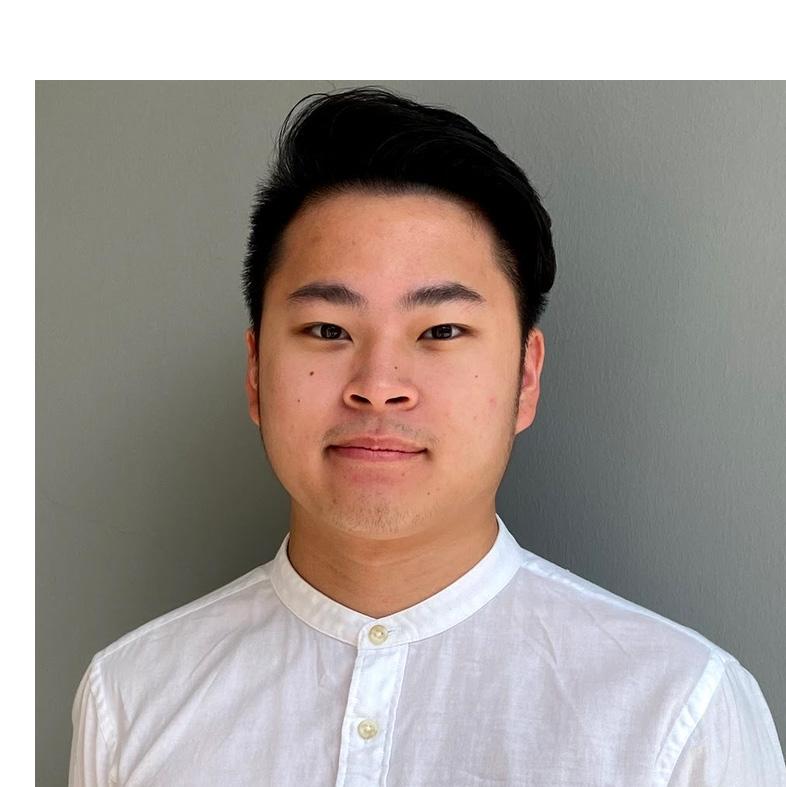
His role
Marcus sees RUMSA as ‘very much a bridge between students and management’ with methods and approaches quite different from the UK campus, but is keen to see RUMSA move towards becoming a more independent student body and ensuring they work better with school management. There is a relatively small number of students at Reading’s campus in Johor and Marcus is keen to expand RUMSA’s influence.
At the moment, RUMSA is very event-focused and relies on sponsorship, which has been relatively easy to obtain due to a number of vendors such as restaurants in the local area that are keen to attract student customers.
Marcus (as with other student reps) was aware of the differences between student unions and student councils/associations but wondered if Malaysia was ready for such a change. In the UK, student union leaders take a year-long sabbatical which is paid for by the university. He didn’t feel that the Malaysian culture was ready for this; many students don’t want to take a year off and ‘everyone wants to graduate on time’. He reckoned that 50% of Chinese Malaysian parents would say no to the idea!
He felt Educity (University of Reading is in Johor and is part of the Educity educational hub) has communicated well and has ‘provided food and reacted fast’. The University of Reading campus has followed government guidelines, but has not asked for students’ opinion. He feels this will come in time and is reflective of the size of the student population.
Marcus Cheong Yu Zhe President, Reading University Malaysia Student Association (RUMSA) ‘19/20
Adarsh Iyer School Representative, Newcastle University Medicine Malaysia
Similar to Marcus, Adarsh represents a UK branch campus in Educity Johor, Newcastle University Medicine Malaysia. Ironically, Adarsh is from Newcastle, Australia and I interviewed him from there.
His role
He sees his role as ‘talking about any concerns that the student body might have’, ‘driving positive change and ‘bringing issues directly to Professor Baldwin and Dr Claire (part of the senior management team at NuMed)’.
He has already seen positive change due to his influence such as the improvement/modernisation of equipment.
Student reaction to COVID-19
I asked if he felt that the student reaction to the pandemic was different at a medical school with access to more information and knowledge. He felt that younger students were more concerned and there were inevitable concerns about hospital visits and whether adequate precautions were being taken.
He had a phone interview with the UK campus to obtain his current position and has an advisor in the UK.
As with Marcus, Adarsh didn’t feel that Malaysia was ready for student unions. He was ‘not sure that students are ready to accept that change’, especially at a medical school where the students are ‘highly focused on academic study’.
He realises how different it is in the UK, and clearly size matters in both Reading and Newcastle where the home campuses are considerably larger.
He saw his role as student representative as invaluable to his career where he will need to lead a team and ensure effective communication. This role has allowed him to ‘develop skills to be confident in oneself’.

Raja Rajeswary
Student Council President, IUMW (International University of Malaya-Wales)
Her role
As with Adarsh, she feels her role is to ensure ‘students are heard by the management of the university’ and that ‘action is taken’. She sees room for improvement in previous student councils.
Much of her focus has been on events and ensuring wider participation, and she is keen to ensure inter-university participation.
As with others, she has doubts that Malaysia is ready for student unions and feels that ‘the mindset has to be right’. She noted that this may be different at local public universities with large numbers of students. She noted that the student reps from these schools were ‘like young versions of politicians’.
At IUMW many students are on loans and from the B-40 group. The switch to online has left them disadvantaged and they don’t have Wi-Fi or unlimited data plans and, perhaps will be sharing one laptop among four people.
Raja reflected that her role has improved her communication skills and given her a sense of responsibility which would help in any future career.

Sarah has a dual role in that she represents both the Netherlands Maritime Institute (NMIT) as well as a larger body designed to represent the student voice across six institutions within the Educity hub in Johor.
She hopes to bring students together in Johor and feels a ‘privilege to have this kind of responsibility’. She also sees ‘public universities as more active than private ones’ and also wants to ‘look at it from a Southern point of view!’
She was chosen by the other student representatives across Educity and hopes to ‘give the students weight at management level’. They get some funding directly from Educity, allowing for seed money for projects.
With no student union culture, Sarah has concerns that Malaysia is not ready for student unions. For example, ‘after SPM they immediately go on to higher education and there is no such thing as a gap year’. Parents will worry about the idea of student unions and it will take ‘sometime for the newer generation to get this idea’. She felt that students in the UK mature very quickly and maybe it’s the cold weather or the culture.
There have been varied responses across Educity, but as this was unprecedented, Sarah felt everyone was doing their best. Use of WhatsApp as a communication tool has been key.
Her role gives her ‘confidence to speak’ as well as helps her gain experience and knowledge which will be valuable for a future career.
All the student leaders I spoke to were articulate and confident young people who saw the importance of their role in relating the student voice to management and ensuring that changes made took their views into account.
They also saw this role providing them skills that would serve them well in the future, in terms of communication, teamwork and leadership.
The proposed change from student councils to student unions was less positively received and they were somewhat ambivalent about whether Malaysia was ready for such a change. There appears to be a lot of education needed for both students and parents to convince them of the value of a student union.


The rationale behind the Royal Holloway 100 is ‘to provide a large-scale platform for the student voice’. Although student unions provide representation and advocacy, the RH100 is a large focus group of 100 panellists from across the student body encompassing undergraduates, postgraduates and international students as well as those who are studying from home.
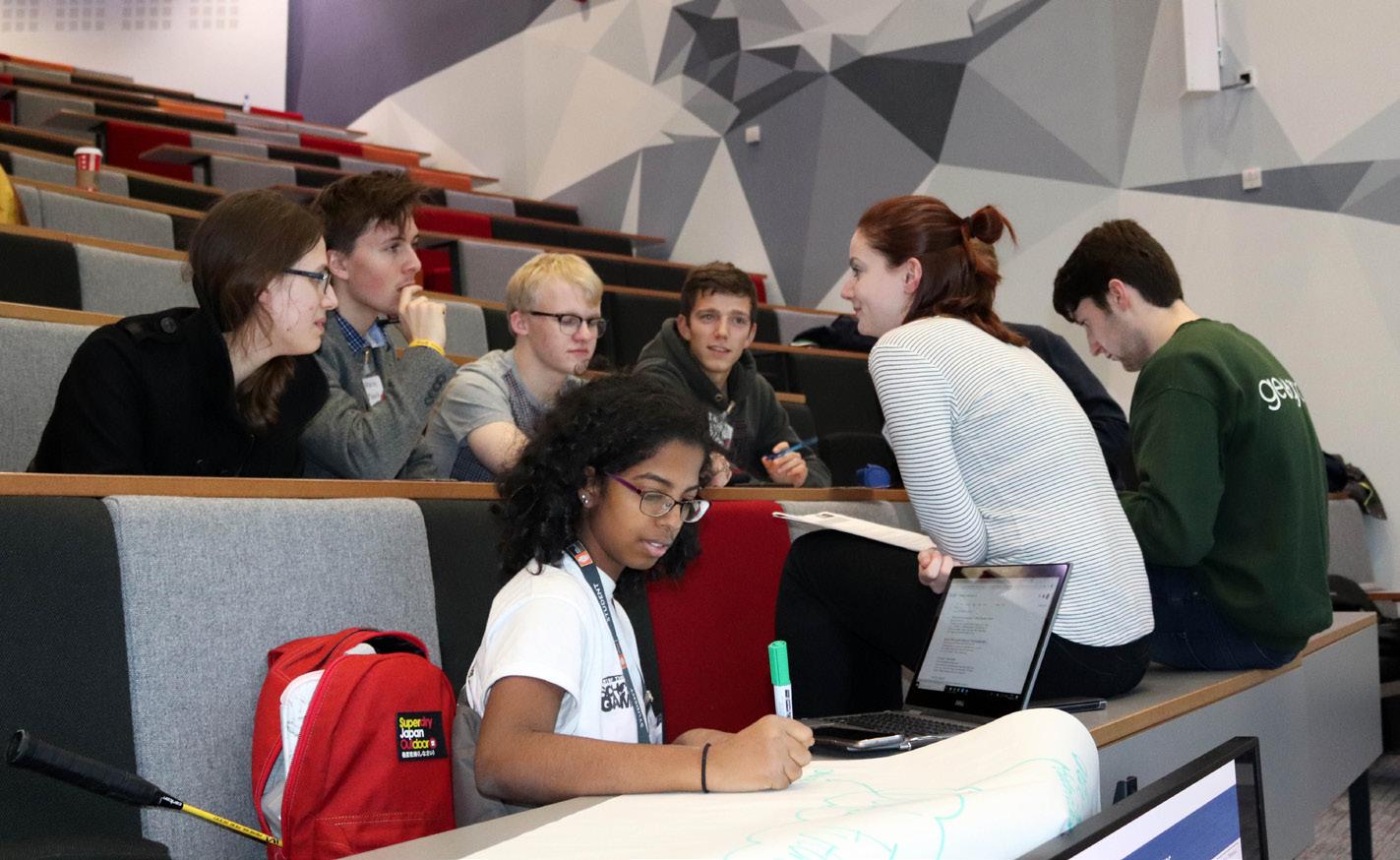
Its main purpose is to provide input into the College’s strategies and services to improve the student experience at Royal Holloway. Although focus groups are widely used across the university sector in the UK, they tend to be small and mainly attract those students engaged in student life.
We spoke with Jack Wright, originally one of the panellists and now the Student Engagement Officer, who makes sure every aspect of the RH100 runs smoothly.
Jack said that it was a project that had been running since 2016 with the aim of working in partnership with students to make them co-creators of their own education and student experience. Initially, it was offered to the student union, and although they declined direct involvement at first, they are now very supportive of the idea. The RH100 aims to be very distinct from a student union in that it gathers multiple (often conflicting) voices.
Panellists are paid for their contribution both when they attend a panel (£9.85 an hour/ RM50 an hour) which are held three times a year and also for work that they are required

to do prior to the panel such as background reading and/or completion of surveys.
The panels are reflective of student demographics and there is a rigorous assessment process. The final round reduces the candidates from 125 to 23. Candidates must produce a written application which outlines their perceptions of the student voice and what contributions they feel that they can bring to the panel.
Senior management takes the panellists views seriously and ‘don’t want to miss out on such a big narrative’.
They have a direct impact on the long-term college strategy via their engagement with senior management and there is a clear benefit to their future careers in being involved in the RH100.
Other institutions in the UK such as Keele, Bournemouth, Reading have adopted such an approach, and there is also the Kings100. Over time the interest has grown, and there is always a determination to ensure that wider groups which are perhaps not so well represented in the more traditional student structure are involved.
Royal Holloway is part of the University of London and home to around 10,593 students, of whom more than 2,000 are international students.
Royal Holloway is part of the University of London and home to around 10,593 students, of whom more than 2,000 are international students.
 Photo by DAVID ILIFF. License: CC BY-SA 3.0
Photo by DAVID ILIFF. License: CC BY-SA 3.0



A key stakeholder in the importance of the student voice and student leadership roles at universities are employers. There has been a lot of focus on the key issue of the employability of fresh graduates and we wanted to unpack the thoughts of international graduate employers as to both the skills that graduates need, or lack, as well as to whether taking an active role in a student union (or similar) would be regarded positively by employers.
The interviews below were drawn from PwC which employs more than 3,000 people in seven locations across Malaysia and AstraZeneca, a top global pharmaceutical company committed to people development.
When hiring graduates what kind of students are you looking for?
AstraZeneca:
We look for graduates or prospective employees who are resilient and curious with the agility to learn. Importantly, they live our AstraZeneca values.
PwC:
We look beyond academic achievements when we recruit graduates. We evaluate candidates holistically based on their achievements reflected in their résumés and select graduates with the potential to grow and further develop their skills and capabilities to become a PwC Professional.
What skills do you value most?
AstraZeneca:
Open to continuously learn and challenge themselves, with the right growth mindset.
PwC:
Looking at how fast the world changes, and even more so in today’s situation, it is undeniable that technology plays a huge part in our lives. As such, we are on a journey to upskill our people to be #FitForFuture where we place emphasis on these two main skills:
i. Human skills: Leadership, creativity, empathy, good communication, and teamwork are critical and go hand in hand with growing our digital skills. Being agile is also key, to have the hunger to learn new things, and even unlearn and relearn if needed.
ii. Digital skills: Technology changes so fast that it’s sometimes hard to keep up. Having digital skills means that you need to be curious, be able to innovate when it comes to using technology to make work more efficient and to enhance value for our clients and our people. Recognising this, our firm has a Digital Accelerator programme to enable “citizen-led” innovation. These citizens are our people who create digital solutions that help the business through learning and implementing new digital tools that save time and increase work quality.
What skills are lacking in today’s students?
AstraZeneca:
Students need to have the right level of industry exposure prior to graduating, allowing them to pick up core skills to complement their academic knowledge (e.g. peer-to-peer collaboration, project management, presentation and leadership skills). With the evolution of our business, we would expect students to be more digitally savvy and look at more creative ways of applying their knowledge in the work environment.
PwC:
Sometimes it’s the basic skills that are most lacking such as the ability to communicate clearly and succinctly. Many students struggle to explain their ideas, especially during interviews. Resilience and agility are also skills that are often lacking and especially crucial in these uncertain times. Situations can often change suddenly, and we need to adapt quickly to deliver the best possible outcomes for our teams and clients.
Do you regard student involvement in student representative bodies as a positive attribute for a graduate?
AstraZeneca:
Yes, it provides a platform for students to acquire leadership skills, situational management, exposure to represent and lead the team and at the same time be exposed to industry leaders. For example, individuals in the Ambassador program under the ACCA course generally have a strong learning mindset, collaboration skill, and leadership skills.
PwC:
I believe that involvement with student bodies helps build skills beyond the classroom, and these are skills that are part of the PwC Professional key attributes. Through the years, PwC has been collaborating with various student bodies in our local campuses, in the UK, and also in Australia on events such as sharing sessions, guest lectures, mentoring, etc.
Working with these students, we can see that it really can help to enhance their Whole Leadership and Relationship attributes. For instance, they need to demonstrate that they can work together in a team of diverse individuals, as well as lead and organise events with various employers. Overall, we have many positive interactions with student bodies, and many have gone on to join the firm.
The current crisis is likely to cause an economic downturn and lead to an increase in graduate unemployment – what advice would you give to current students?
AstraZeneca:
Graduates should constantly upskill themselves. Being resilient, with an open mind, will be key for survival. There are many paths for success in their career as long as the individuals are willing to learn and able to get their hands dirty in learning new skills or roles.
PwC:
Organisations are going through a period of uncertainty right now and hiring selectively, so remember to stand out. You can do so by highlighting these three points about yourself:
i. Critical or niche skills: highlight any skills that you have gained (e.g. through student bodies, leadership roles, cocurricular activities, etc.) that could be useful in the role you are applying for.
ii. Agility: explain how you can adapt to different environments and changes that come your way.
iii. Resilience: demonstrate that you can use creativity to solve problems and can perform under pressure.
Additionally, don’t limit your choices. Look beyond what you aim for as there are more options available. Explore online job boards, freelance portals, agencies that employ part-timers, or go outside your comfort zone and try for a job that wasn’t even in your consideration. In these challenging times, the focus should be on gaining experience first while you look for your “dream job”.
There were a number of key words that emerged from these interviews and clearly resilience and agility are key graduate attributes that were highlighted by both employers and of clear benefit for graduates to develop and highlight in job applications as the graduate employment market is going to be tough over the next few years. It will be interesting to see if institutions can impart these values to their students or if they are aspects that come down to a student’s individual character development over the period of their studies or exposure to experiences such as periods of study overseas.
It was great to hear that both AstraZeneca and PwC felt that student leadership activities were viewed as a positive benefit ‘building skills beyond the classroom’.
Clearly, graduates face challenging times ahead and the need to ‘upskill’ or ‘reskill’ themselves will be key; also, the realisation that there are many routes to success and that stepping outside a path that they may have defined for themselves due to their choice of programme may be a necessity in today’s market.

The COVID-19 pandemic has been a global disruptor for many sectors, and higher education is not exempted from it. While entire sectors were devastated, certain trends were accelerated. Digital adoption and the importance of the student voice are among the trends that will continue to be on the rise. As the economic crunch continues, evidencing the value that higher education is delivering will continue to be very necessary.
Students, parents, employers, policymakers, and the larger society will demand education institutions to deliver programmes that not only equip students with academic capabilities and technical competencies but also build skills that are necessary for success and employability. All of that needs to be delivered in a highly cost-effective manner and this will be a major challenge for the higher education sector.
Even prior to the COVID-19 pandemic, many studies predicted major shifts in employability and the nature of human jobs as a result of the technological advancements brought about by the Fourth Industrial Revolution. Now we can expect even more disruption, and education in general, and higher education in particular, will need to rise up to the challenge of future-proofing our youth.
Keeping students motivated and ensuring that their wellbeing and mental health are being taken care of will continue to be a priority and a challenge, particularly as students are learning online.
There is no doubt that there will be a global recovery after the pandemic. Our challenge is to deliver an education that will prepare our students mentally and emotionally to lead that recovery, and to achieve this, listening to the student voice is more important than ever. This can only be done in partnership with all stakeholders.
Andy Grove, the ex-CEO of Intel, said “Bad companies are destroyed by crisis, Good companies survive them, Great companies are improved by them.” I am confident that the higher education sector will emerge stronger and more resilient as we all learn the lessons that this crisis has taught us and continues to teach us.

Student representation and engagement is viewed as an extremely important way for universities to understand and enhance the student experience. It is clear that both governmental bodies and public and private universities wish to encourage more in-depth and collaborative student engagement with higher education providers in Malaysia, but it will be critical to ensure students are seen and valued as ‘equal’ partners in the decision-making processes for this to work successfully.
It has been suggested by the government that the mechanisms whereby this enhanced representation and engagement is developed here in Malaysia is through the re-establishment of student unions. The purpose of a student union is to represent students’ interests and views in all matters that may concern the student body. Further to this, a student union is led by students and has accountability to the student body. A good student union will have many functions including organising charitable and social events, managing societies and clubs, running campaigns and giving independent advice to students. Further to this, a student union will give the entirety of the student community a ‘voice’ within the highest levels of a university. Thus, it is essential that universities are willing to adapt their processes and procedures to listen to and respond to this ‘voice’ in an open and collaborative manner.
It is clear, from the interviews with students in this document, that students are currently unsure as to the value of changing their student associations to the more independent, student-owned student unions. Hence, it is critical that universities and governmental bodies work with students to show them the benefit of these changes and how these changes will be of value to them and their juniors in the future. Further to this, from the interviews with graduate employers, it is clear that the ‘soft skills’ that students will develop if they take up representative roles in a student union are highly valued and seen positively when students apply for jobs after they graduate.
In conclusion, we see the development of student unions in Malaysian higher education institutions as a positive step forward, although both universities and governmental agencies will need to be very clear to students as to how these will work and how they will benefit students in the future.

• Dr. Zaid Bin Omar Former Director of Student Development Division, Department of Higher Education, Ministry of Education
• Prof. Mushtak Al-Atabi Provost, & CEO, Heriot-Watt University Malaysia
• Prof. Kamila Binti Ghazali Deputy Vice-Chancellor (Academic and International) University of Malaya
• Madeleine Roach
Head of Global Business Services APAC, AstraZeneca Asia-Pacific Business Services Sdn Bhd
• Salika Suksuwan Director, Clients & Markets, PricewaterhouseCoopers Associates Sdn. Bhd. (PWC)
• Kent Tan Talent Sourcing & Campus Engagement, PricewaterhouseCoopers Associates Sdn. Bhd. (PWC)
• Marcus Cheong Yu Zhe President Reading University Malaysia Student Association (RUMSA) ‘19/20
• Adarsh Iyer School Representative, Newcastle University Medicine Malaysia
• Raja Rajeswary Student Council President, IUMW (International University of Malaya-Wales)
• Sarah Shevaun 2019/2020 Student Senate President, EduCity
• Jack Wright Student Engagement Office, Royal Holloway

Established in 1963, the British Malaysian Chamber of Commerce (BMCC) has been driven by the sole ordinance of advancing bilateral trade relations between the United Kingdom and Malaysia. Over the past five decades, the BMCC has been a catalyst in providing businesses with networking events, branding & exposure, trade services and industry advocacy. Today, the BMCC has firmly rooted itself as one of Southeast Asia’s most prolific Chambers.
The BMCC is appointed by the UK’s Department for International Trade (DIT) to become their service delivery partner for British SME’s seeking to export or establish a presence in Malaysia. Embodied by dedicated sector specialists, the BMCC Trade Team provide a range of customised services from market intelligence, business matching and event management to sourcing assistance of UK goods and services.
With a certified accreditation by the British Chambers of Commerce (BCC) network across the United Kingdom, the principles upheld at the BMCC are continually updated in assurance of living up to the global standards set by the BCC accreditation system. The BMCC is also a member of the BiSEA (Britain in South East Asia) network, a grouping of eight BriEsh Chamber and Business Councils across the Southeast Asian region aimed at developing effective relationships between British Chambers of Commerce within ASEAN to further facilitate business opportunities for their members.
DISCLAIMER
This publication was produced by the British Malaysian Chamber of Commerce Berhad (BMCC). Whereas every effort has been made to ensure that the information given in this document is accurate, neither the British Malaysian Chamber of Commerce accept liability for any errors, ommisions or misleading statements, and no warranty is given or responsibility accepted as to the standing of any individual, firm, company or other organisation mentioned.
You may reuse this information (not including logos and images) free of charges in any format or medium, under the condition to acknowledge the source of information i.e (BMCC) in your product of application.
© 2021 British Malaysian Chamber of Commerce Berhad

British Malaysian Chamber of Commerce Berhad
4th Floor, East Block, Wisma Golden Eagle Realty, 142B Jalan Ampang, 50450 Kuala Lumpur.
info@bmcc.org.my
+603 2163 1784
www.bmcc.org.my
Follow us @BMCCMALAYSIA